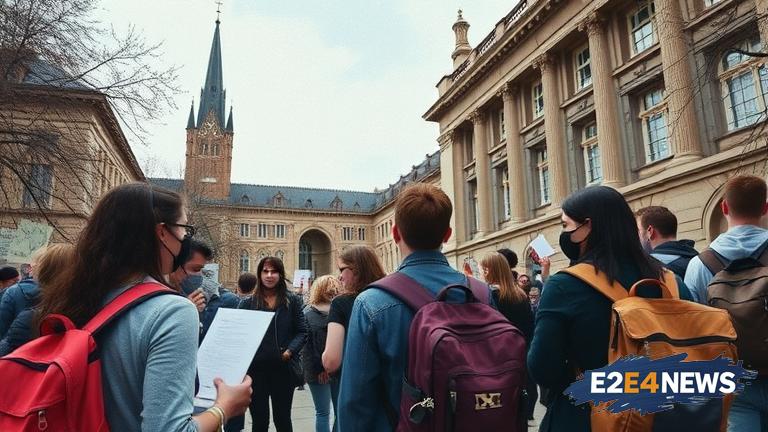The University of Melbourne has been embroiled in a controversy surrounding the alleged tracking of student protesters’ Wi-Fi activity during a demonstration. According to reports, the university used its Wi-Fi network to monitor the online activities of students who were participating in a protest on campus. This has raised serious concerns about the university’s respect for student privacy and its commitment to upholding democratic values. The incident has sparked widespread outrage among students, academics, and civil liberties groups, who argue that the university’s actions constitute a blatant violation of students’ right to privacy and freedom of expression. The protest in question was organized by a group of students who were advocating for greater transparency and accountability in the university’s decision-making processes. The students had gathered in a public area of the campus to express their grievances and to demand greater representation in university affairs. However, unbeknownst to them, the university’s administration had been monitoring their online activities through the Wi-Fi network. This included tracking the websites they visited, the social media platforms they used, and the online content they accessed during the protest. The university’s actions have been widely condemned as a gross invasion of students’ privacy and a clear attempt to intimidate and silence dissenting voices. Many have argued that the university’s actions are reminiscent of authoritarian regimes that seek to suppress dissent and stifle free speech. The incident has also raised questions about the university’s policies and procedures for protecting student data and ensuring that students’ online activities are not monitored or tracked without their consent. The university has thus far refused to comment on the matter, citing concerns about student safety and security. However, this response has been met with skepticism by many, who argue that the university’s actions are a clear breach of trust and a violation of students’ fundamental rights. The incident has sparked a wider debate about the role of universities in protecting student privacy and promoting democratic values. Many have argued that universities have a responsibility to create a safe and supportive environment for students to express themselves and to engage in peaceful protest. The University of Melbourne’s actions have been seen as a clear failure to uphold this responsibility, and have damaged the university’s reputation as a bastion of academic freedom and intellectual inquiry. The incident has also highlighted the need for greater transparency and accountability in university decision-making processes, and for clearer policies and procedures for protecting student data and ensuring that students’ online activities are not monitored or tracked without their consent. In response to the controversy, a group of students has launched a petition calling on the university to apologize for its actions and to commit to upholding students’ right to privacy and freedom of expression. The petition has garnered widespread support, with many students, academics, and civil liberties groups signing on to condemn the university’s actions. The incident has also sparked a wider conversation about the impact of surveillance and monitoring on student activism and free speech. Many have argued that the university’s actions will have a chilling effect on student protest and activism, and will discourage students from speaking out on issues that matter to them. The University of Melbourne’s actions have been seen as a clear attempt to suppress dissent and stifle free speech, and have raised serious concerns about the university’s commitment to democratic values. The incident has also highlighted the need for greater awareness and education about online privacy and security, and for students to be aware of the risks and consequences of using university Wi-Fi networks. In conclusion, the University of Melbourne’s decision to track student protesters’ Wi-Fi activity has sparked widespread outrage and condemnation, and has raised serious concerns about the university’s respect for student privacy and its commitment to upholding democratic values. The incident has highlighted the need for greater transparency and accountability in university decision-making processes, and for clearer policies and procedures for protecting student data and ensuring that students’ online activities are not monitored or tracked without their consent.
